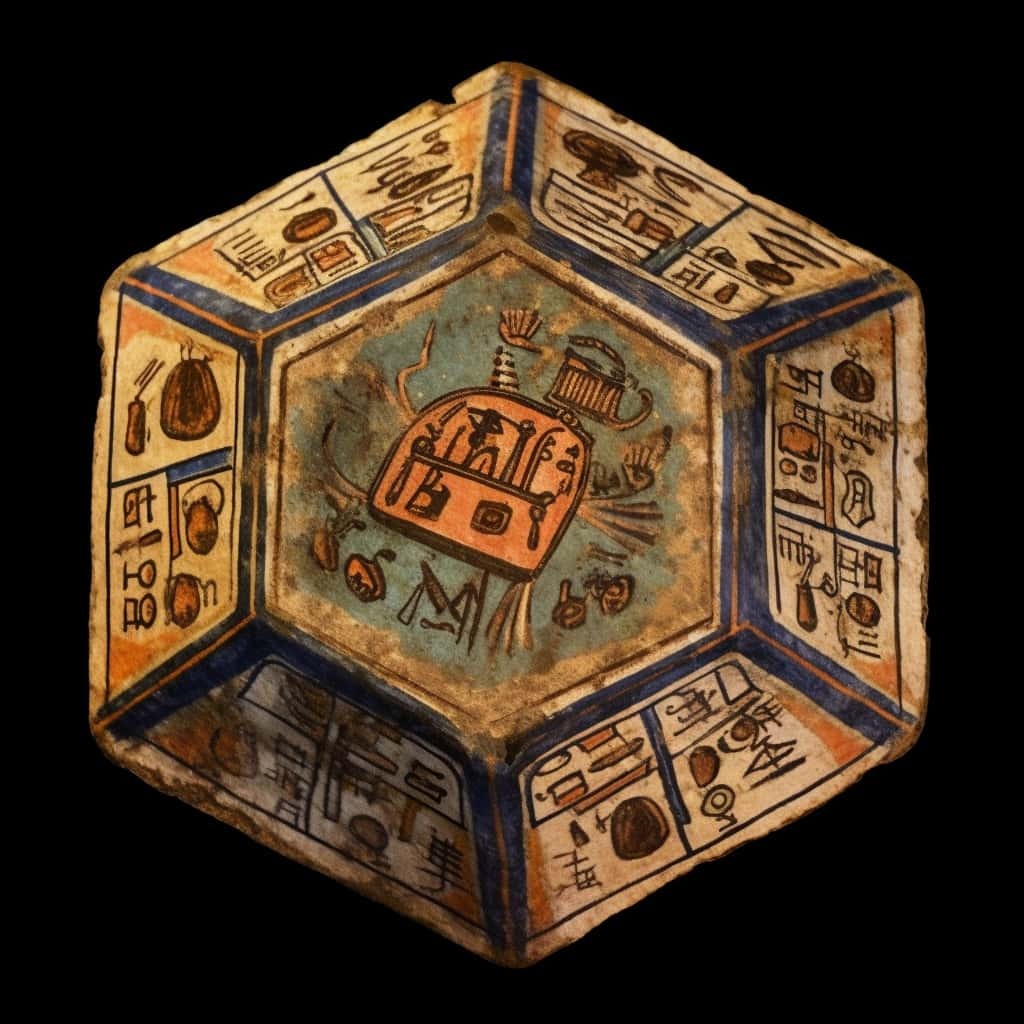I thought it might be nice to set up a thread in which we can recommend game systems to one another. What do you like? Why? Give us a quick blurb about a game you like and why you think others might like it. Maybe call out if you think it would be good for absolute beginners or folks new to the OSR/NSR. Oh and the genre too. If this gains some steam, I’ll pin it to the sidebar for easy access.
Recommending some free game systems of some different flavors - because free is best for people who are interested in exploring OSR.
Worlds without Number (and other games from Kevin Crawford). Great free version with basically the whole rule system and some great generators. Has a bit more character creation crunch than other systems so it can be a good transition from 5e
Basic Fantasy Rpg. Retro clone with some ‘modern niceties’ like ascending armour class. All the rules, supplements and some great adventures are available free on their website.
Mausritter. Rules light (into the odd based) system with a pay what you want version. DnD broken down to it’s simplest core where you play as cute mice adventurers.
+1 for Mausritter,it comes with an explanation for diy worlds and has a charge item based magic system
It must be an urban classic by now, but I can’t stop marvelling at free league’s forbidden lands. The system is dead-simple, yet leaves all the room for nuance and tactics. The fantasy world is classic, but with a surprise twist here. The official campaigns are superb with lots of “aha!” Secrets to discover, while at the same time a low-prep gameplay with just travel (well done hexcrawl) and randomly generated sites is also possible.
@theLazyPragmatic @osr I am in love with it. I managed to sell it to some friends that are obsessed with Gloomhaven telling them about the map with stickers, which apparently was a huge selling point for both.
There’s some resemblance there, that’s true :) We played Gloomhaven before Forbidden Lands, too, but all online, so there weren’t many stickers involved in the first place. Congratulations on finding a group to play, are you campaigning or just hexcrawling? There’s a community for FbL on lemmy, did you know?
@theLazyPragmatic we are starting the campaign this summer finally. It’s my friends I have been playing with for over 20 years, and recently we decided this year we’ll finally get around playing FL, Mothership and possibly Lancer. But then yesterday I got Broken Compass and I might want to push that on top of the list.
I will definitely join the Lemmy community! Thank you for the link
I’ve written a couple similar posts recently, so I’ll consolidate those and add a few more. Apologies for any overlap with existing comments here.
Into the Odd is the epitome of rules light, striped down ,classic DnD. How many rules can you remove and still retain a playable game and the classic adventuring feel? Turns out most of them! This game has spawned a truly absurd amount of hacks, and if you sit down to read and play ITO you’ll see why. The physical copy of the remastered edition is a gorgeous little book as well.
Electric Bastionland is the bigger, younger sibling of Into the Odd. Written by the same author it takes the same core ruleset (with a tiny number of tweaks) and places it into a somewhat absurdist, wonderfully inventive, urban setting. This book is fantastic on many levels, including the unbelievable amount of artwork. Each of the more than 100 Failed Careers has its own piece, and the entire thing serves as a de-facto world-building section alongside its role in character creation. Also includes, in my opinion, the single best collection of GMing advice you can get in a physical book.
Cairn is one of the many aforementioned hacks of Into the Odd, but also pulls in the itemized inventory and character generation tables of Knave. If you want a quick to pick up and play system that pairs nicely with all those OSR modules you’ve been collecting but haven’t run, this is for you. It is not mechanically, directly compatible with b/x stat or adventure, but the dead simple framework makes it extremely easy to convert things on the fly (or just use the large, and growing, list of pre-conversions for various modules. It’s garnered a huge community and spawned its own set of hacks.
Mausritter is an ITO hack in a similar space as Cairn, but you’re playing as tiny mice adventuring in a big and dangerous world. The physical version has super fun cards to use with the slot based inventory, and the digital version is totally free. I’ve found this to be a great gateway (or long term stay!) for the N/OSR space because it’s very easy for people to get into the proper headspace. It makes sense to run away from danger, come up with clever plans to ambush dangerous foes, sneak rather than fight, etc… you’re a tiny mouse! Also if any of your players were into Redwall as kids this will be an easy pitch.
Mothership RPG is a sci fi horror game in the vein of Alien. It has a number of fantastic modules to play, both first party and written by the large and very active community it has fostered. Simple core rules, and great if you’re looking to run a one shot where you expect your players to either lose their minds or get eaten by a monster by the end of the session.
Wolf-Packs & Winter Snow is a prehistoric roleplaying game. Fascinating ideas, really cool setting, a neat loop of hunting and gathering to sustain your tribe (you get XP when something you’ve hunted is eaten, not just killed). Magicians don’t have spellbooks, they have spell locations. I have sadly not actually run or played this one, but it’s such a fun thing to read.
Troika! is an off the wall, somewhat absurdist science fantasy RPG. It has, the core book especially, the best short form, expressive, writing that manages to imply a grand complex setting in a tiny space. Many of the first and third party supplements are also great, I’ll specifically recommend Acid Death Fantasy for a tripped out Dune experience or Very Pretty Paleozoic Pals for playing as actual dinosaurs this book is great. The actual ruleset of Troika! is not for me, but I’ve run plenty of fantastic sessions using it and I love, love, love the writing, art, and settings.
MÖRK BORG is the art-punk, heavy metal, apocalyptic fantasy game. This book gets a lot of attention (and sometimes flak) for it’s dense and complex art and layout, for good reason the book is gorgeous to flip through, but it also contains a nicely working core of rules light d20 gameplay. It also contains The Calendar of Nechrubel, where at irregular points in your game (the rough frequency decided by the table at the start) a new misery occurs, plunging the cursed world into further darkness. When the seventh, and final, misery occurs the world, the game, and your lives end. You are instructed to burn the book. Which all means you get to drive your characters like stolen cars, the world’s ending anyway!
CY_BORG is the cyberpunk version of the above, and trades a dying fantasy world for a chrome and neon corporate dystopia.
Blades in the Dark has you playing as a gang of scoundrels in a Dishonored-esque whale oil powered city besieged by ghosts beneath a sky filled by a dead sun and a shattered moon. It’s got a compelling core loop of going on missions, getting stressed out on those missions, indulging your vices to relieve that stress, getting into trouble because you overindulged, and then needing to go on more jobs to get cash to dig yourself out of that trouble. Going on big heists, and do flashbacks Oceans 11 style to do a dramatic reveal of a hidden aspect of your plan.
Scum and Villainy is Forged in the Dark but you’re a crew on a space ship plying your way in a sci fi galactic sector. Variably Star Wars, Firefly, or Cowboy Bebeop depending on your choice of starting ship, and the direction you take the game.
CBR+PNK is another Forged in the Dark game, but compacted into a set of pamphlets where you take the role of cyberpunk runners performing one last job before retirement (or before one last attempt at revenge).
Tunnel Goons is extremely easy to pick up and play, endlessly mod-able and flexible. There are gobs of hacks of this game floating around, and it’s easy to see why.
Maze Rats is a classic quick to pick up system. Compact, with a wonderful set of tables that are useful even if you don’t end up playing the game.
The Black Hack (or a physical copy) is a nice, rules light take on classic d20 fantasy adventuring, complete with the traditional classes of Warrior, Thief, Cleric, and Wizard.
The Whitehack a super interesting take on old school play. The base classes are extremely flexible and interesting. Roll a d20 under attribute and over AC for combat. This game has possibly the highest density of good ideas to steal, even if I find some of the text a little obtuse (the newer editions are better about this).
Macchiato Monsters is a more flexible, open ended mashup of the above two games. Flexible, “build your own character” classes system, and I hope you like usage dice (or risk dice, whatever you want to call them), because they’re everywhere here.
Self Promo Zone
I’ve got two work in progress games of my own.
Brighter Worlds (online SRD here) is my more light-hearted, whimsical take on the N/OSR space, through the lens of Evlyn Moreau’s fantastic artwork. It’s a hack that combines Electric Bastionland, Cairn, and Macchiato Monsters but worked into a form with what I’m calling “modular crunch”. It’s meant for GMs (like myself) that want super simple core rules, but with players that might want something more crunchy, with more levers to pull at the table. Each of the Callings has their own set of modular rules that (if I’ve done my job correctly) no one else at the table has to understand, avoiding combinatorial complexity of teaching the game, and the GM just needs to give a thumbs up or thumbs down once in a while. Many of the Callings are fairly open ended and require buy in and interpretation on the part of the player and table, so it’s not for everyone.
Meteor (online SRD here) is my more straightforward hack of Cairn. It ostensibly exists because I wanted to run Mothership modules with Into the Odd rules, but its started to expand a bit in scope from that point. It takes a slightly more golden age, pulp sci fi tone, and (like Cairn) does not have mechanical compatibility with Mothership but should be very easy to convert on the fly as needed.
I could probably keep going with with more systems, and don’t even get me started on the similar question but for modules, but at some point I’ve got to cut myself off and get actual work done.
Please let me know if I’ve made any errors or have any broken links.
Edit: Totally did not realize which community I was in while writing this comment, whoops. I can remove the non-OSR/NSR systems if we’d like to keep the discussion a bit more focused.
No worries! Thanks for the extensive write-up!
This is all going to be more NSR
Cairn seems like an obvious one. It’s classic fantasy that will be pretty familiar to people, it has a good number of adventures as well as adventures for other systems that have been converted, and also all the rules are totally free.
Mausritter (modern, but nice) and liminal horror (modern, but horror) are also good. These are all Into the Odd games, there are a lot of hacks of this system for different settings and I feel like you can’t really go wrong there.
I’ll also recommend Fallen, especially for solo games. It’s more like gothic fantasy. It has some really good random tables. I use the oracle deck for other games all the time.
I recently played a small campaing with Cairn and I enjoyed what these systems with a few abilities achieve. Barrow Delver is a nice set of solo rules for it.
Mausritter is a great intro to the “OSR spirit”: due to the player being a mouse, you won’t be a hero for long if you run straight to every dangerous situation. Einzelmaus exists to play it solo.
@HexedPress I will recommend an old system:
The Silhouette, which originally powered Heavy Gear, Jovian Chronicles, Gear Krieg and Tribe 8 and was eventually published ad a standalone book as SilCore.
It’s a generic system, not too crunchy but extremely versatile. It replaced GURPS in my campaigns between 2004 and 2014ish.
Dream Pod 9 is kickstarting a new edition of Heavy Gear, however from what I have seen in playtest the new Silhouette is quite different from the old one I like.
Interesting! I remember Heavy Gear though I never played it. Thanks for sharing!
@HexedPress it’s more or less my favorite game :)
Life on Terranova is the single best setting manual I have ever read.
If you want to recapture the feel of early D&D, ShadowDark (quickstart book) looks like it’s going to be pretty good. The simple tweaks to the current game make a big difference, and the artwork is spot-on. This is the image grabbed my attention when I fist saw it (and realized it was new).

Dave Trampier is the most obvious influence, but the art also reminds me of Garry Chalk’s illustrations for Joe Dever’s Lone Wolf books and the early editions of Talisman. Now that I mention them, Lone Wolf game books and the original Talisman board games are worth familiarizing yourself with if you really want to get into the old-school experience…
NSR/Rules Light
Mausritter: I’ve run this one in various one shots for probably around 50 different players already, and so far every single one has enjoyed it. The inventory system is great, the setting is great, the hackability is great. Like most rules lights I don’t like running campaigns in it, but for pickup games in my FLGS it’s my nr 1 favourite.
Black Sword Hack: If you want to get the feel and vibe of old school pulp action sword & sorcery fantasy in a rules light way, this is THE system. After Mausritter this is my other go-to for pickup games and other one-shots.
Pirate Borg: Pirates are awesome. The Mork Borg ruleset is decent. This game combines them into a really sweet blend. Also, for my tastes, Pirate Borg adds just enough meat to the bare-bones rules-light games that this is actually the only NSR game I enjoy running actual campaigns rather than just one shots in.
OSR
OSE Advanced Fantasy: As far as OSR goes this is the holy grail for me personally. B/X is right where the sweet spot between complexity and rules-light fits in my personal experience, and OSE is the best possible reference material to use in the modern day for B/X. B/X also has 40 years of homebrewing history, and so anything you don’t like about the system should be trivial to change.
Hyperborea: Where Black Sword Hack is THE system for rules-light old school pulp action sword & sorcery fantasy, this is THE system for slightly deeper old school pulp action sword & sorcery fantasy. For me personally it has some unneeded complexity as it leans more to AD&D than B/X, but I still enjoy it for all the flavour it has.
ACKS: Way too simulationist for me when you go all the way to the nitty gritty, and there’s some weird choices made in how saving throws and attack rolls are handled, but the classes are just chef’s kiss and they are 100% compatible with B/X or OSE. If you want to run a race-as-class kind of game you owe it to yourself and your players to have a look at how ACKS handles these classes.
Stars/Worlds/Cities Without Number: Beside B/X this is my most played OSR system. I don’t put them higher on this list because I personally don’t like skill lists and feats, which are both very important to SWN/WWN/CWN, but my players love these systems, and if you’re one of those GMs who has players that come from 3rd/4th/5th edition D&D and you wanna convince them to play OSR games, this is in my experience the best way to go. It has all the customisation options that modern players (and min-maxers) love, but still with sufficient OSR sensibilities. Also, even if you don’t run this game as is, I recommend checking out the Game Master chapters on how to run a sandbox campaign, how to manage factions, etcetera. That material is absolute gold.
Other Old-School Inspired
Forbidden Lands: It’s got some flaws like every other system, but I like the dice pools, I like the way defenses work in this game, it’s got some amazing random tables and survival mechanisms. I’ve recently finished a 2 year long campaign in this system and I don’t regret it at all. If you wanna lean really heavily into the hexcrawling part of Old Shool Gaming this one definitely is a great choice.
Seconding the X Without Numbers series. I don’t even play Worlds Without Number but it’s a goldmine of tools for sandbox campaign-building for an OSR D&D game. Cities Without Numbers is shaping up pretty well too. I’d certainly rather play that than try to wrap my head around the Shadowrun system.
They all have free versions too, which is nice.
Oh yeah, CWN is absolutely playable already. I’ve been GMing a campaign since version 0.9 of the beta - well, we already agreed to start playing with 0.7 but didn’t play our first session until the day after 0.9 came out. And it’s been going very well. Much better than any other beta game I’ve ever played before. I do run it in a very Shadowrun style way too. Never was a fan of CyberpunkRed (too crunchy) or Shadowrun (just an absolute mess).
Nice! I’ve just been using it to build a campaign world for fun but I haven’t had a chance to play it with people yet.
Are you finding it works well as a sandbox? I’ve never played any kind of cyberpunk rpg like that before, it’s always been super-railroady because as players we understood that the GM spent time crafting some mission/plot in advance, so we might as well just go along with it.
It’s less sandboxey than my fantasy games, but I typically generate the missions using the tools in the book. If you use the tools to have your city, your districts and your factions in place, all you need is a quickly generated hook and I can easily proceed with a randomly generated mission.
I’m a really big fan of DURF. Fast, simple, slot based inventory, take stress to cast spells or grant bonus to your roll takes inventory, way better supply implementation than Five Torches Deep, easy to run monster stats.
Some one asked this recently, so I thought I would share my post here.
Why Fantastic Heroes and Witchery is my favorite OSR.
-
It’s like BECMI but brought up to modern gaming standards. But blends some Old school into it to. So you have races and over 30 custom classes. Including race specific classes that are close to the original BECMI material. Each core class, fighter, religious, rouge, and mage has 3 classes that should tickle your fancy.
-
Magic and Religion takes a more western medieval bend to it. There are colors of magic (white/grey/black), But illusionists, are still separate. There is no dedicated priest class. Because anyone can be a priest/follower. However there are a few religious classes. This is where I think it really shines. There’s no divine magic, it’s all magic regardless of it’s source.
-
Level 13 is the new level 20. I love this change. However level 14+ are considered Epic levels of ability and skill
-
Saves are simplified, but class, race, and ability scores can alter the chances.
-
Fighters are no longer a rather bland class by introducing fighting styles that only true fighters can have. Id even play a Bard in this system, has more of a troubadour feeling to it.
-
Your background determines the skills you learned growing up. This is a broad grouping of skills that are on par with professionally skilled npcs (lvl 4). You gain skills for your class as well, and you can learn more if using the optional talent system. Skills are a d20 vs. a target number like, DnD 3 + and above.
-
Alignments are replaced with a personality trait system, adding a level of flexibility to the old alignment system. But better defined.
There’s a lot more to it, but these are my selling points.
I had not heard about this one before, thanks for sharing it and breaking it down for me!
You are welcome!
-
I’ve been playing Numenera for a couple campaigns and we all have really enjoyed it. The system is simple and kinda chunky and allows for a stronger narrative with more theater of the mind, less grinding in combat scenarios. Those combat scenarios can be more engaging and narrative, too. Plus, the sci-fi/fantasy setting is really fun.
Well obviously Lavender Hack? Lolz!
The game of Words has finally been updated Conrad’s Fantasy Next Millennium is a very different way to game. You do all the same olde things with maybe a dash more team orientation. Killing the enemy is with the words on the character sheet. Any two words put into play will kill a mortal. Most things you meet are not mortals. Great Trolls, Demon Spawns, Undead Knights are just a few of the things you have to overcome. You have to make them mortal first to kill them. This can take several rounds. About the leveling system - All I can say is you will never play another game with a leveling system like this :) ***This game comes highly recomended if you hate boring spell list!
I already posted a video about Black Sword Hack - Rich in game world for the GM to easily start a campaign.
I believe I already hawked Empire of the Petal Throne on here too? If not Tekemel the most hated and feared game world is not gone and certainly not forgotten. Grab your Shen and come join in the fun.
Going away from Fantasy we have
Hulks & Horrors a BX like space opera game
S&W White Star an OD&D Space Opera Game with a great skill system
Mecha Hack - Black Hack with Giant Mecha Robots
Seattle Hack - Black Hack in a Shadowrun Like Enviorment
Esoteric Enterprises - OD&D, Shadowrun, and White Wolf Vampire had a baby
Agents of the O.D.D. Into the O.D.D. and XFiles had a baby with a dash of James Bond
White Lies - OSR James Bond meets XFiles
Hey there, just joined the party late, but since it haven’t been named here, I’d like to add my favorite OSR/NSR systems:
Beyond the Wall & other Adventures is a super basic (in the B/X sense) low fantasy, low magic system, that wants to create the atmosphere of Le Guins Earthsea, Krabat and European mythology (and does it well imo). 3 basic classes, but lots of flavour created through character books. Speaking of this, character creation is zero-prep and a village is created alongside it, to give a starting point and linking aspect for the group.










